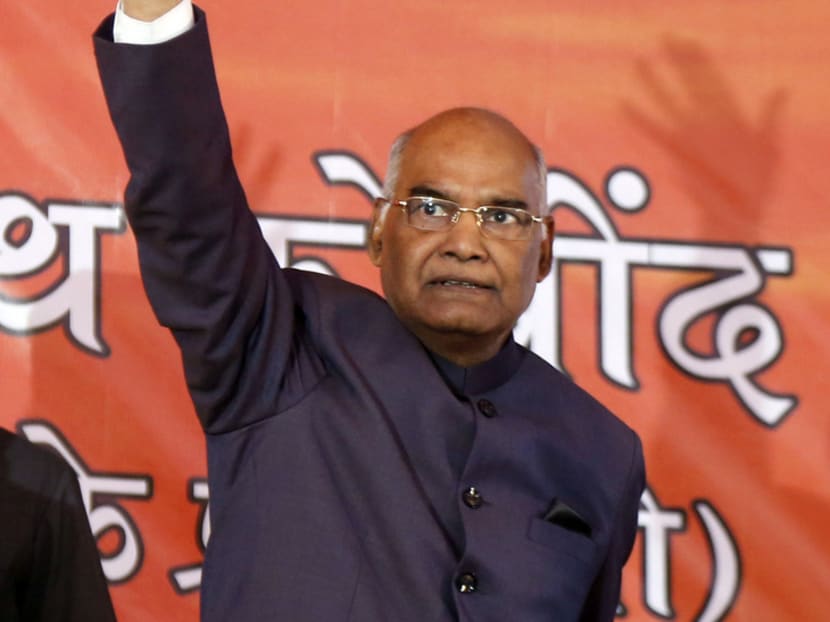India set to pick candidate from lowest caste as next president
NEW DELHI — Indian lawmakers voted yesterday to pick the country’s president, who is certain to come from the lowest Dalit caste, in an election seen as strengthening Prime Minister Narendra Modi’s grip on power.

Mr Modi’s Bharatiya Janata Party (BJP) has nominated Mr Ram Nath Kovind, a 71-year-old former lawyer from the Dalit community. Photo: AP
NEW DELHI — Indian lawmakers voted yesterday to pick the country’s president, who is certain to come from the lowest Dalit caste, in an election seen as strengthening Prime Minister Narendra Modi’s grip on power.
Some 4,900 legislators nationwide voted in what Mr Modi termed a “historic” election to choose the titular head of state.
Mr Modi’s Bharatiya Janata Party (BJP) has nominated Mr Ram Nath Kovind (picture), a 71-year-old former lawyer from the Dalit community.
His main rival is Ms Meira Kumar, the nominee of the Congress-led opposition and also a Dalit.
The result will be announced on Thursday, but Mr Kovind’s victory is almost certain since the BJP says it has the electoral college numbers needed to push its candidate through.
Members of both Houses of the federal Parliament and state assemblies across the country can take part in the vote.
Mr Modi, among the first to cast his vote in Parliament, said he looked forward to working with Mr Kovind.
“My government will offer full cooperation to him,” he told members of Parliament from the ruling coalition.
The president’s role is largely ceremonial, but as the custodian of the Constitution, the president has played an important role in times of uncertainty, such as when a general election is inconclusive and a decision has to be made about which party is best placed to form a government.
Some, such as outgoing President Pranab Mukherjee, have tried to act as conscience-keepers, using their constitutional authority as the head of state to defend India’s founding principles as a secular, diverse democracy. Mr Mukherjee has held the office since 2012.
Analysts said Mr Kovind’s election will help Mr Modi tighten his grip on power and accrue political capital by sending an important message to the Dalits, a long-disdained electoral group once known as “untouchables”.
It will be only the second time that India has had a Dalit head of state.
Dalits, who number around 200 million in the nation of 1.3 billion, are among India’s poorest communities and relegated to the margins of society.
Despite legal protection, discrimination is rife, and Dalits are routinely denied access to education and other advancement opportunities.
Mr Modi’s rivals have protested at Mr Kovind’s nomination, citing his association with the radical right-wing Rashtriya Swayamsevak Sangh, the ideological power behind the BJP.
The opposition nominee Kumar, the daughter of freedom-fighter Babu Jagjivan Ram, was a diplomat before entering politics in 1985 and became India’s first woman Speaker in 2009.
Her nomination, which followed Mr Kovind’s, was seen by many as an opposition attempt to counter Mr Modi’s move to woo Dalits.
Congress president Sonia Gandhi rallied opposition ranks before the vote, calling the contest a “clash of ideas and a conflict of disparate values”.
“We cannot and must not let India be hostage to those who wish to impose upon it a narrow-minded, divisive and communal vision,” Mrs Gandhi said.
Votes from the BJP’s traditional Hindu base propelled Mr Modi to his 2014 landslide general election victory, especially in the battleground states of Uttar Pradesh and Bihar.
Dalit support will be key for the BJP before the 2019 general election as the party has been largely shunned by Muslims, who make up about 14 per cent of the population. AGENCIES






